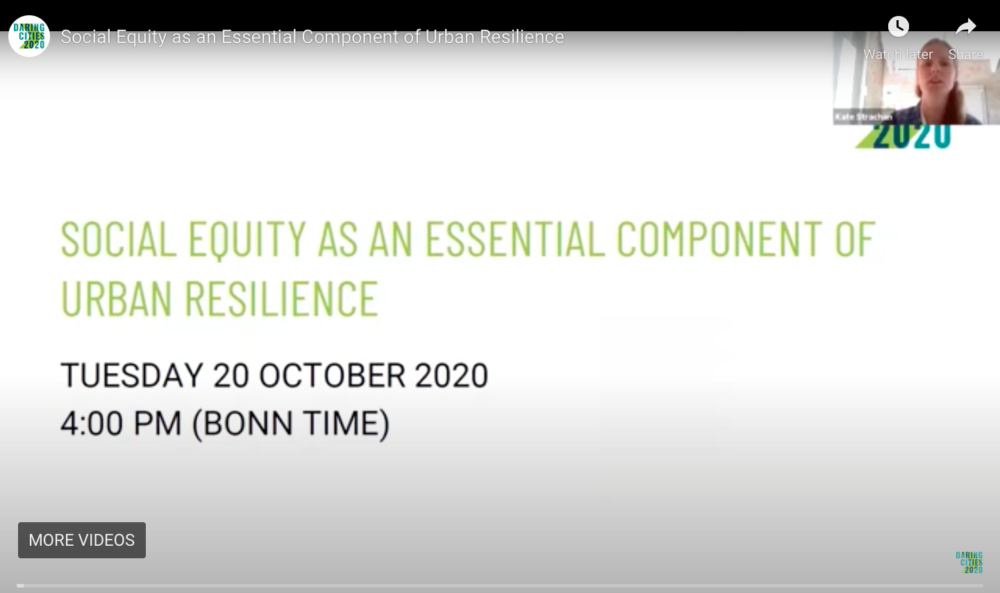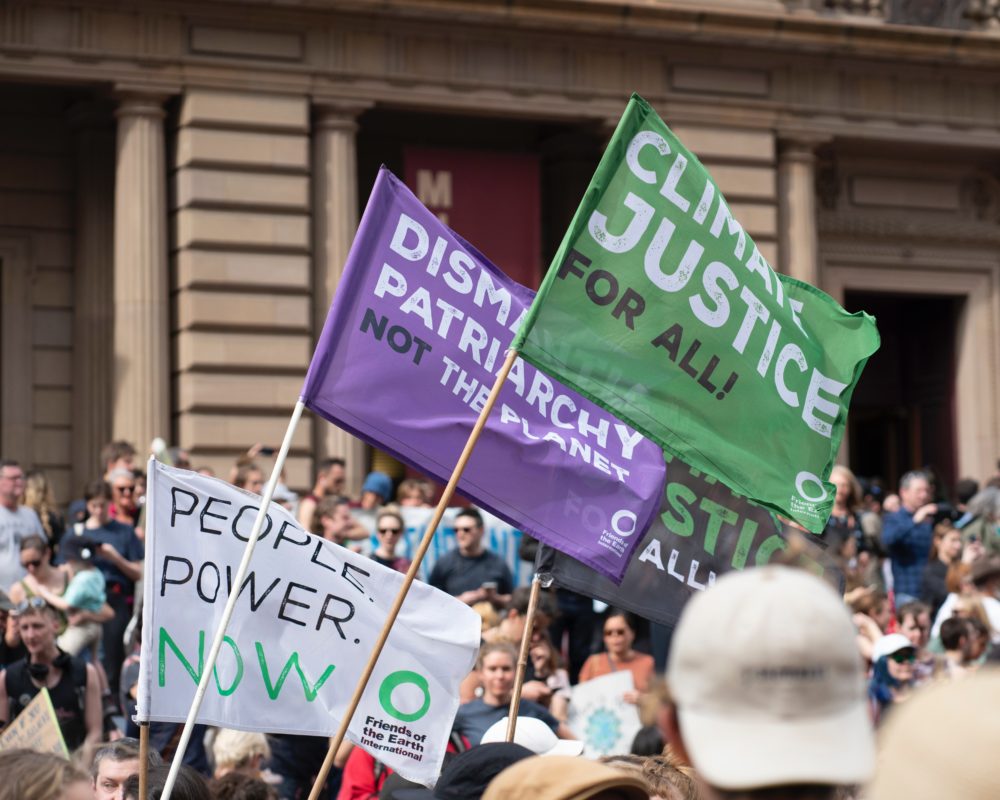
In order to access the video, you must create an account on Daringcities.org or log-in.
The effects of climate change and natural disasters in cities are felt most by working and impoverished people (who are disproportionately people of color, indigenous people, and women) who lack access to quality urban services and infrastructure. The COVID-19 crisis has exacerbated and exposed many of those gender, race and economic inequalities, especially with regards to accessing essential services, job protection, and domestic violence.
These disparities are also at the center of the Black Lives Matter movement, which has brought worldwide attention to racial violence and disenfranchisement that has existed for centuries in the western world; as well as the large number of demonstrations in Latin America, Africa, and other regions against gender violence. We recognize that these systems of oppression are interconnected and need to be addressed through transformation, rather than reactionary and insubstantial approaches.
Without engaging in transformative planning that challenges systemic structures that value short-term profits over long-term resilience and sustainability, we cannot mitigate or adapt to climate change. Communities need a “just 2 transition” away from an economy that is based on unsustainable and unethical resource extraction and production, as well as planning and building practices that put people, disproportionately low-income, at risk in the face of climate impacts.
The need for transformational planning in the face of the climate crisis and the COVID-19 pandemic requires a discussion of cities and experts on the effective and just delivery of services and infrastructure. A whole-of-a society and human-rights approach along with permanent community engagement in the decision-making processes is essential to build inclusive urban resilience. This session showcases city experiences from the global south and north facing disasters with a holistic, intersectional and radical approach.
Facilitator
- Meggan Spires, Senior Manager, Climate Change, Energy and Resilience, ICLEI Africa Secretariat, South Africa
Panelists
- Christine Berg, Former Mayor of Lafayette, CO and currently the Senior Policy Advisor at the State of Colorado Energy Office, USA
- Giulia Maci, Urban Specialist, Urban Specialist, Gender Focal Point, Cities for Women Programme, Cities Alliance (UNOPS)
- Jaqueline Coutinho, Mayor, Sorocaba Municipality, Brazil
